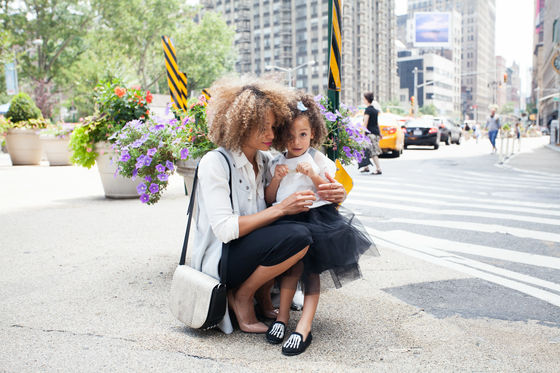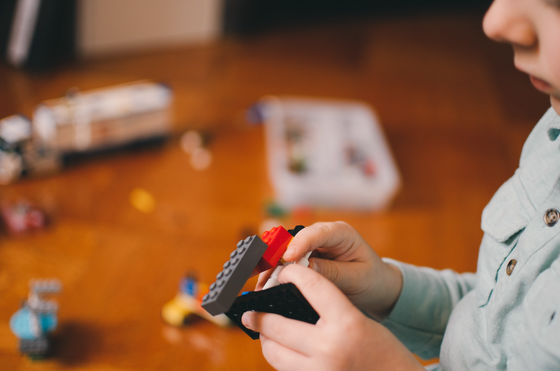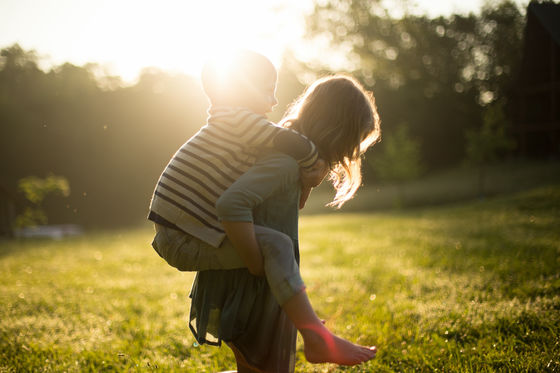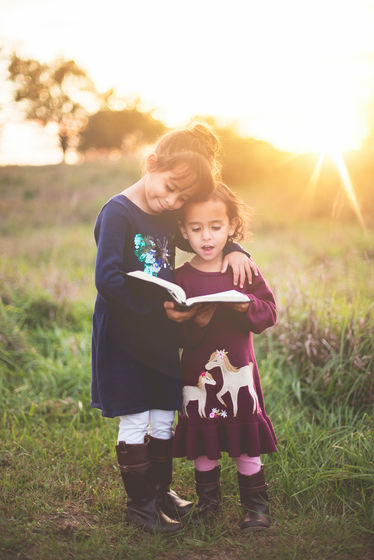Why do children need "play"?

byMI PHAM
As urbanization and declining birthrate progress, children's playing places, playing companions, and playing hours are decreasing year by year. Furthermore, the number of parents worried about traffic accidents and crime increased, and it became less clear that we saw the appearance of a child playing energetically outside. However, "play" is important for children, for example by improving physical and motor skills by moving the body, it is also possible to develop communication skills and cooperativeness by playing with many friends. Professor Peter Gray of psychologist introduces the importance of "play" for such a child in five parts separately.
All Work and No Play: Why Your Kids Are More Anxious, Depressed - The Atlantic
https://www.theatlantic.com/health/archive/2011/10/all-work-and-no-play-why-your-kids-are-more-anxious-depressed/246422/
In recent years, the time that children can play freely is gradually decreasing. This seems to be a problem not only in Japan but also in America. Professor Peter Gray, a psychologist, is not part of an organizational activity, but the time that a child can play freely with his / her own will is called "Testing place of life". This is the time necessary for a small child to grow to a self-confident, competent adult, and this "freedom to spare time" decreases, "society suffers a great loss" Professor Gray thinks.
Although it seems that it seems that it seems that you have not seen the appearance of the children playing outside compared to the past, there are research results showing that it is actually correct. According to a study investigating the day's behavior patterns of children aged 6 to 8 in 1981 and 1997, the play time and free time of children are overwhelmingly smaller in 1997 than in 1981 . According to the survey, in 1997, the time spent at school increased by 18% compared with 1981, the time to do school homework increased by 145%, and the time going out with parents and shopping increased by 168% . In addition, it is also clear that children in 1997, even including computer-based play, can spend only about 11 hours of play per week.
In another study, a questionnaire survey was conducted for parents with children, and 85% of mothers said they answered "their time is less than their child's time outside their children than when they were children." There are also many mothers who are trying to keep children outdoors for safety reasons.

byLondon Scout
Professor Gray has summarized "Five Advantages Gained by Playing Children with Freedom" in order to protect children's play time that is decreasing year after year.
◆ 1: "Play" helps children to form their own identity or to find things of their own interest
Given "a time that you can play freely", the children decide what to do for themselves and transfer them to execution. Also, through play, children will become familiar with "what you are interested in". And by using the ability (such as physical strength and communication skill) learned through play, you will live a life after that.
"Children work at school for grades and praise.In sports, efforts are spent to gain praise and trophies, but in playing children do what they want to play. The result is only a by-product, there are no conscious goals in activities, "Professor Gray says. Children can nurture their interests and identities by playing with their own minds without having a clear purpose, which will surely be useful when growing.

byKelly Sikkema
◆ 2: It is through the game that children learn first that "make decisions, solve problems, self-control, follow rules"
When children play freely, they decide on what they play with, solve problems that appeared in the middle of play, and also have to control themselves if there are some restrictions. For example, if you are playing games, you need to accept the restrictions imposed, to regulate your own actions and follow the rules, but through these, children will be able to gain a sense of mastery in their own world Become. The sense of wearing it leads to protecting children from anxiety and depression, and it seems to bring huge psychological benefits.
"Children who do not have the opportunity to learn how to control their own actions, make decisions yourself, solve problems, and protect rules are not able to control their own lives and destiny. We will rely on luck and grow growing with the kindness and capricism of others, "Professor Gray says.
Anxiety and depression occur frequently when feeling that they are not controlling their lives, "People who believe that they are familiar with their destiny are in a situation that they can not control The likelihood of feeling anxiety and depression is lower than those who believe that, "Professor Gray says. Play is an ideal skill to acquire the ability to control himself and to acquire a feeling for repelling anxiety and depression.

byJenn Evelyn-Ann
◆ 3: Children learn to deal with emotions such as "anger" and "fear" in play
While playing free, children sometimes put themselves in physical and socially difficult situations, but also learn to control emotions arising from these stress factors I will. Children play games like playing games, climbing trees, and so on, but "such activities are moderately fearfully fun," Professor Gray said.
Professor Gray also points out the possibility that a decline in the ability to regulate emotions leads to the onset of anxiety disorder, "People suffering from anxiety disorders" to lose control of emotion "the greatest fear I am cited as ". If you have never experienced a situation that you can feel moderately fear in childhood play, you feel a big anxiety in a situation where your emotions fluctuate in your life after becoming an adult, It is said that there is a possibility that it will develop.

bypan xiaozhen
◆ 4: Play is a great opportunity for children to learn about "equality" by making friends
Children playing with friends is a natural means to learn to treat each other fairly. Play is voluntary and players can get out of play whenever they feel uncomfortable. Children learn social skills by trying to learn what is necessary to keep playing by knowing the needs of playing parties.
Professor Gray says, "Being equal with others and learning to cooperate may be the most important ability to play with friends, social play (with friends) is special to young people I believe it is a natural means of teaching that it is not ", he says that social isolation is also increasing due to the declining children's playing time.

byBen White
◆ 5: The most important thing is that "play" is the source of happiness
If you listen to the moment of happiness for children, the answer that "the moment you are playing with your friends is happy" overwhelmingly comes back. Many people think that adults often remember the happy moments they played with their childhood friends.
Professor Gray pointed out that children's playing time is decreasing, but also not only deprived of "joy by play" but also replaced that time with emotionally stressful activities It is also a problem that the point that it has gone. "Society as a whole has shifted towards protecting children from danger and educating, but we adults take away" activities that can be most happy "(= play) from children and take more time and place "It seems that they are designing society to cause anxiety and depression," Professor Gray commented.

byKarl Fredrickson
Compared to the 1950s and modern young people, depression patients are increasing significantly. Also, the suicide rate from 1950 to 2005 is 4 times for children under 15 years old, twice for young people between 15 and 25 years of age, and children have enough play time in childhood Professor Gray pointed out that evils that did not appear in various places.
To recognize that parents of small children need to secure time to freely play in order to raise emotionally healthy children is the first step in problem solving and in the true sense children's happiness It will also help to regain.
Related Posts:







